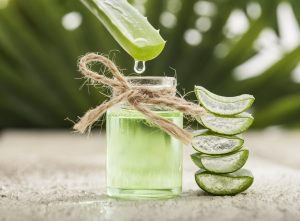 Diverticulitis is inflammation of diverticula, bulges or pockets that form in the intestines or colon. For some patients, diverticulitis may be asymptomatic, and some may experience symptoms like abdominal pain and bloating. In severe case of diverticulitis, a patient may have a high fever, severe abdominal pain, as well as diarrhea or frequent bowel movements.
Diverticulitis is inflammation of diverticula, bulges or pockets that form in the intestines or colon. For some patients, diverticulitis may be asymptomatic, and some may experience symptoms like abdominal pain and bloating. In severe case of diverticulitis, a patient may have a high fever, severe abdominal pain, as well as diarrhea or frequent bowel movements.
Diverticulitis is common in aging population. With age, intestines become weaker. The pressure of hard stools against the intestinal walls is what is thought to cause the formation of diverticula. A low-fiber diet can trigger diverticulitis, too, as it slows down bowel mobility.
Advertisement
The good news is, diverticulitis can be effectively addressed with home remedies.
Foods That Lower Diverticulitis
Aloe vera: Aloe vera helps maintain intestinal flora, stimulate and promote bowel movements, and remove waste. It may also boost the immune system and reduce inflammation.
Slippery elm: Slippery elm can protect irritated tissue, reduce inflammation and pain, and promote healing.
Marshmallow: Marshmallow can help soothe inflammation and promote healthy bowel movements.
Licorice: Licorice has anti-inflammatory properties and can reduce spasms and inflammation.
Lemon: Thanks to its antioxidant properties, lemon can aid in digestion and flushing of the waste.
Potatoes: White potatoes contain anti-inflammatory agents and starch, and are easy to digest.
Papayas and pears: These fruits can boost digestive health because of their fiber content.
Barley: Barley offers good fiber and anti-inflammatory properties.
Brown rice: Brown rice contains compounds that can reduce spasms and inflammation.
Garlic: Garlic may help prevent infection, so it can reduce the risk of diverticular inflammation.
Oregano: Oregano can help eliminate bugs hiding in the digestive tract, as it is a powerful antibacterial and antimicrobial agent.
Yogurt: Yogurt provides healthy bacteria, though be aware that the use of antibiotics will kill them off.
Also read: Diverticulitis diet: Foods to eat and foods to avoid
Home Remedies to Treat Diverticulitis
Liquid diet: If you experience an acute diverticulitis attack, adhering to a liquid diet can help ease symptoms. This means consuming broth, ice popsicles with no fruit pieces, gelatin, pulp-free juices, water, and coffee or tea without milk or cream.
Herbs: Garlic and ginger are two herbs that can help fight inflammation and ease symptoms. Garlic is antimicrobial and antiviral, which can help prevent infection. Garlic has also been found to reduce constipation and ease digestion. Ginger can aid in nausea, vomiting, and diarrhea.
Acupuncture: Acupuncture is commonly used to treat pain and stress. There is some evidence that it may treat constipation.
Essential oils: Essential oils are effective at promoting relaxation, relieving stress, and improving pain. Essential oils can be diluted and applied topically to the kin or inhaled using a diffuser.
Advertisement
Physical activity: Physical activity has been shown to reduce the risk of diverticulitis.
By implementing the right foods and home remedies into your daily routine, you can have greater success in managing your diverticulitis.
Also read:
- Diverticulitis and stress: How they are linked and what to do for diverticulitis stress
- Diverticulitis complications: Rectal bleeding, peritonitis, abscess, fistulas, and intestinal obstruction
